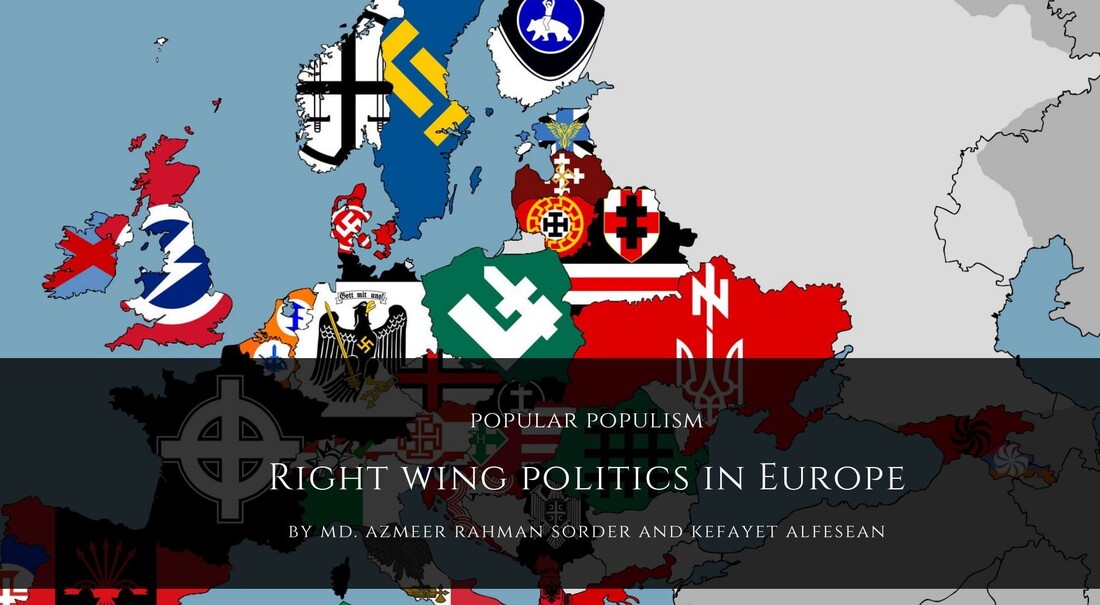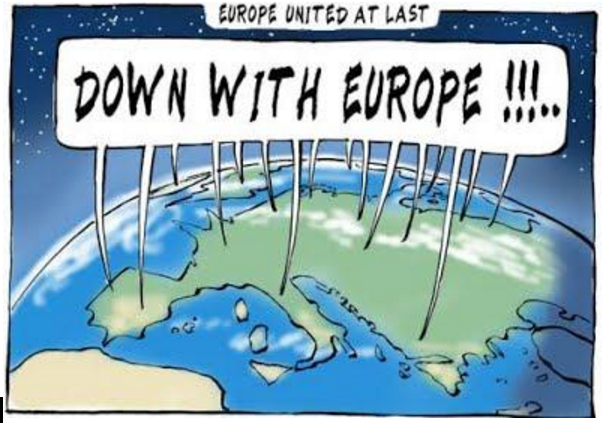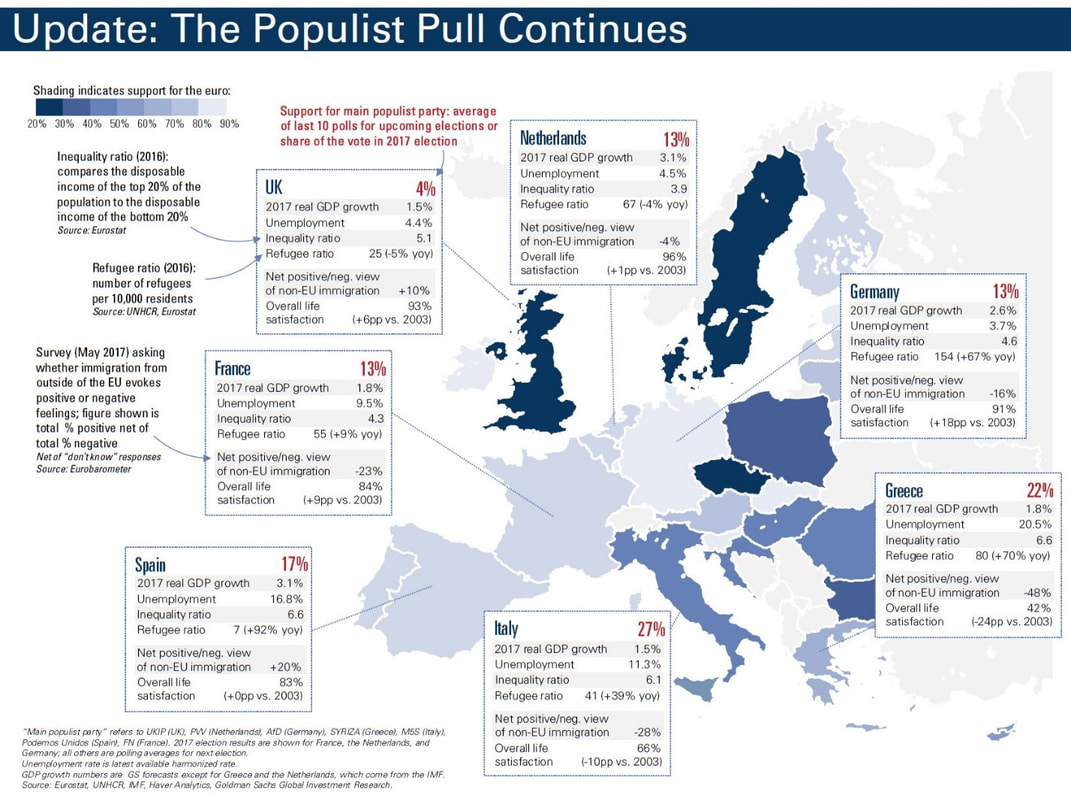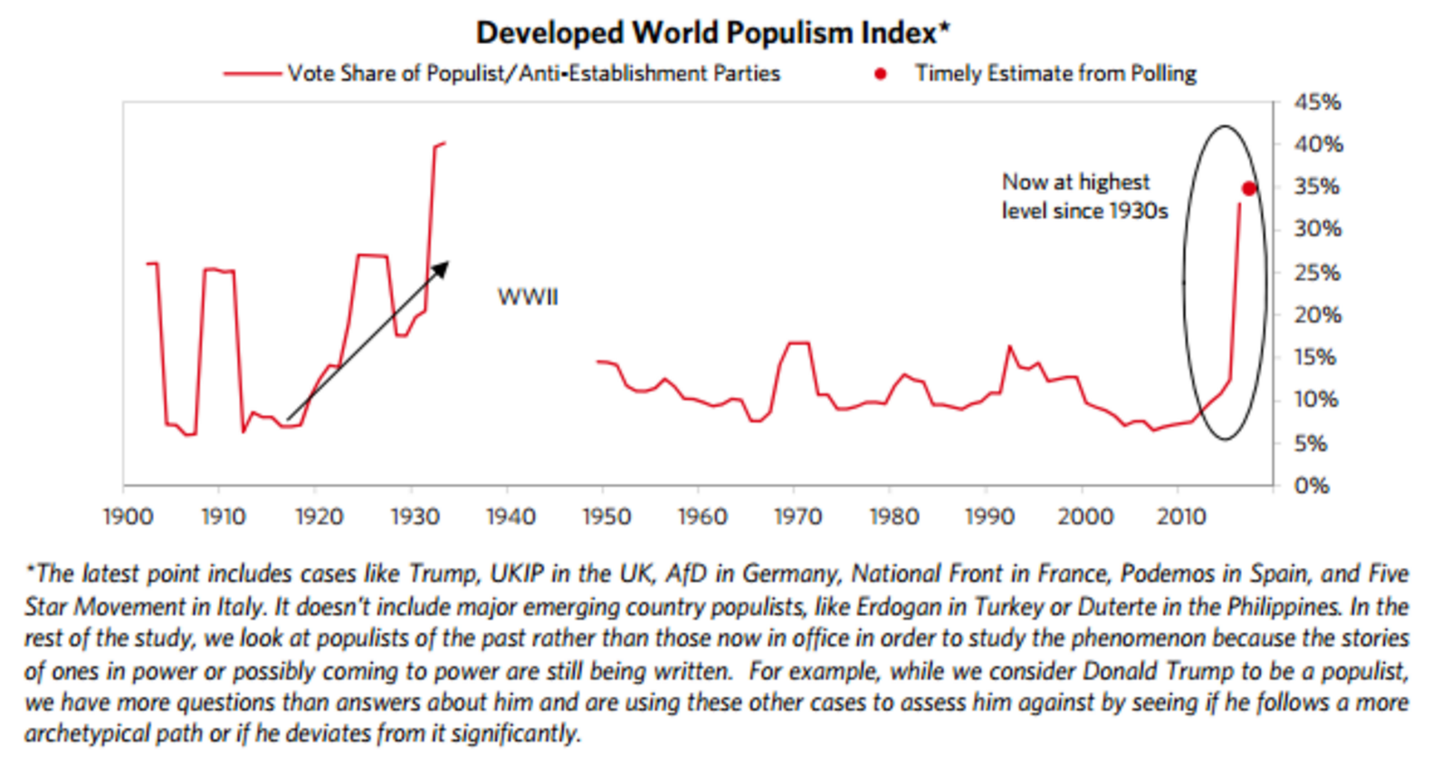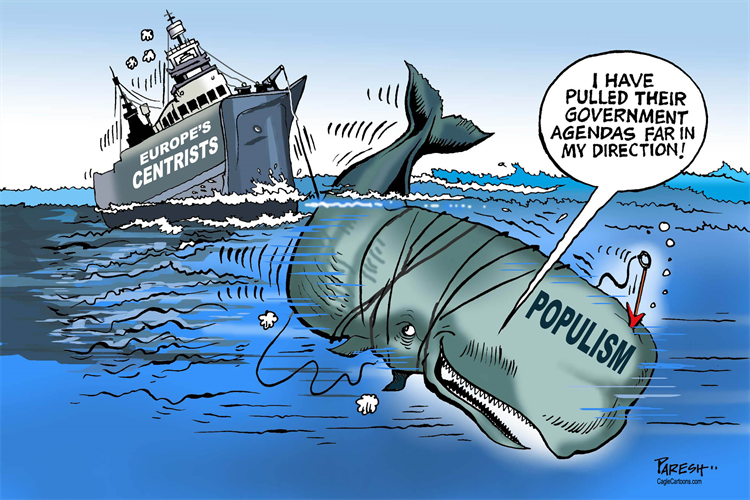ECONOMICS STUDY CENTER, UNIVERSITY OF DHAKA
|
Md. Azmeer Rahman Sorder, Kefayet Alfesan “We have a large public that is very ignorant about public affairs and very susceptible to simplistic slogans by candidates who appear out of nowhere, have no track record, but mouth appealing slogans” ― Zbigniew Brzezinski (Diplomat and Political Scientist) Europe, a continent whose entire history is mostly defined by its conflicts. The continent finally decided to end them all after seeing the devastation of two consecutive world wars. They understood that there is nothing that can be gained from wars except horror and destruction. Thus, a union was formed shortly after World War Two among the nations of Europe which in 1993 got the name ‘The European Union’ whose primary purpose was to build an environment of peace and harmony among the nations so that there are no more European wars. The European Union has been successful so far at living up to their motto. But in recent years a threat is lurking at the horizon which can break the veil of peace for all of Europe and effectively end the EU. This is the threat of the far right nationalism. Since 2000, the number of populist parties across Europe has increased to 63 from 33. Before we confuse ourselves, we are only discussing about the populist radical right. There has been an abundance of scholarly research. The researchers are constantly struggling to understand the people’s motive to support the populist parties irrespective of the right left divide. People centrism, anti-elitism, and a focus on the general will consists the main building blocks of populism. Political scientists have pointed out three major factors, political trust, external political efficacy and populist attitudes on the voting behavior of the people. These constructs relate directly to the populist voting preferences. Europe has been vulnerable to the rise of the populist political parties since before the second world war. The puzzle of Europe is that the European countries that are our main interest do have very high rate of education and literacy, the healthcare situation is better. And these countries are doing more than fine comparing with overall status of the least developed countries and developing countries. The shift towards populism is not some phenomena that has been observed in the recent five or ten years. The academic community are observing the European political parties that takes resort to populism since the 1980’s. A very large number of research literature exists that examines the nature and trends of populism in the European land. While surveying the literature the name that comes up frequently is “The Western Europe”. Western Europe has been a hot zone and the delivery room of the populist political parties and the notorious nationalistic and political ideologies such as Nazism and fascism. After the Second World War, almost all the populist ideologies were associated with the destructive force of Nazism and were politically isolated and marginalized. But since the 1980’s a third wave of the populist ideas swept across the western Europe. The extreme and radical ideas started to gain grounds in the electoral process. The results in Austria, Denmark, Belgium, France, Italy, Sweden, Norway and Switzerland showed both slow and rapid gain of the populist parties and it was clear that their existence was not temporary. A study by Kai Arzheimer published in 2009 analyzes the voting trends for the far right from 1980 to 2002, points out possible theoretical basis such as “group conflicts”, “social disintegration”, “ethnic competition”, “relative deprivation in comparison with another social group”. This study also reports that unemployment rate and immigration is positively related to the support of the populist parties. A research article published by Hans-George Betz in 1993, summarizes the success behind the rise of populism in Europe based on the previous year’s findings. He clearly states that racism, neo-liberal agenda, social cost of accelerated modernization are main propaganda tools of the far-right parties. Another study by Daniel Oesch published in 2008, answers why the workers vote for the far right parties. The result shows that economic protectionism, differential nativism, social disorganization, protest voting, cultural protectionism and welfare competition are linked to the support of the far right parties. Sometimes cultural sensitivity surpasses the importance of economic questions of resources, and they contribute to the support of the far right parties across Europe. The present scenario for the populist parties in the eastern European nations is quite favorable. Populist parties have seized power in at least 7 countries in the eastern region, namely, Bosnia, Bulgaria, the Czech Republic, Hungary, Poland, Serbia, and Slovakia. They already have dominance over the opposition of other three countries. While populist parties in eastern Europe gained 9.1% vote in the election in 2000, their vote share grew to be 31.6%. In the present days, though the populists are not the major power in the western Europe, they have made significant improvement over the years. In 2017’s French presidential election, Marine Le Pen, a populist candidate gained nearly one third of the total vote doubling the support her father gained in the 2002 presidential election. Right-wing populist Alternative for Germany (AfD) won 12.6% in the German general election in 2017 making it the largest opposition in the parliament. In the northern Europe, populists are still a minority force in the political scene. Only Baltic states have seen populist participation in state power. In the other European countries of the northern Europe, populist parties have achieved a steady growth in the public support. The presence of the populist parties in the Nordic countries has heavily influenced their immigration policies. Populist parties have dominated Greek politics for years. They are much likely to play a key role in the Spanish and Italian politics. The populist parties in the southern Europe are generally left-leaning. The austerity and Eurozone crisis has fueled the public anger towards the traditional political parties and it has driven people to the populist parties with pleasant rhetoric. The whole picture of the Europe says that “Right populists are strongest in Eastern Europe. Left populists are strongest in Southern Europe”. In the recent times the European elections in 2017 and 2019 have led to populist alliance in Italy, the largest opposition in the parliament by Alternatives for Germany, the election of the populist leader Victor Orban as prime minister in Hungary. It is a fact that Europe was once fooled by “The elders of Zion” to justify the genocide committed against the Jews. The present “Great Displacement Theory” is a repetition of that history. Europe if not saved from the politics of hate, fear and alienation, will fall victim to the populist outlook for which it has already paid a bloody toll. Europe, once a hotbed for world wars, has made enough progress over the years leading up to a Nobel Peace Prize win. The third wave of populism and new waves of populist ideologies shed a darkness on the European landscape that may bring fresh and unprecedented disasters for the humankind. References
0 Comments
Leave a Reply. |
Send your articles to: |
